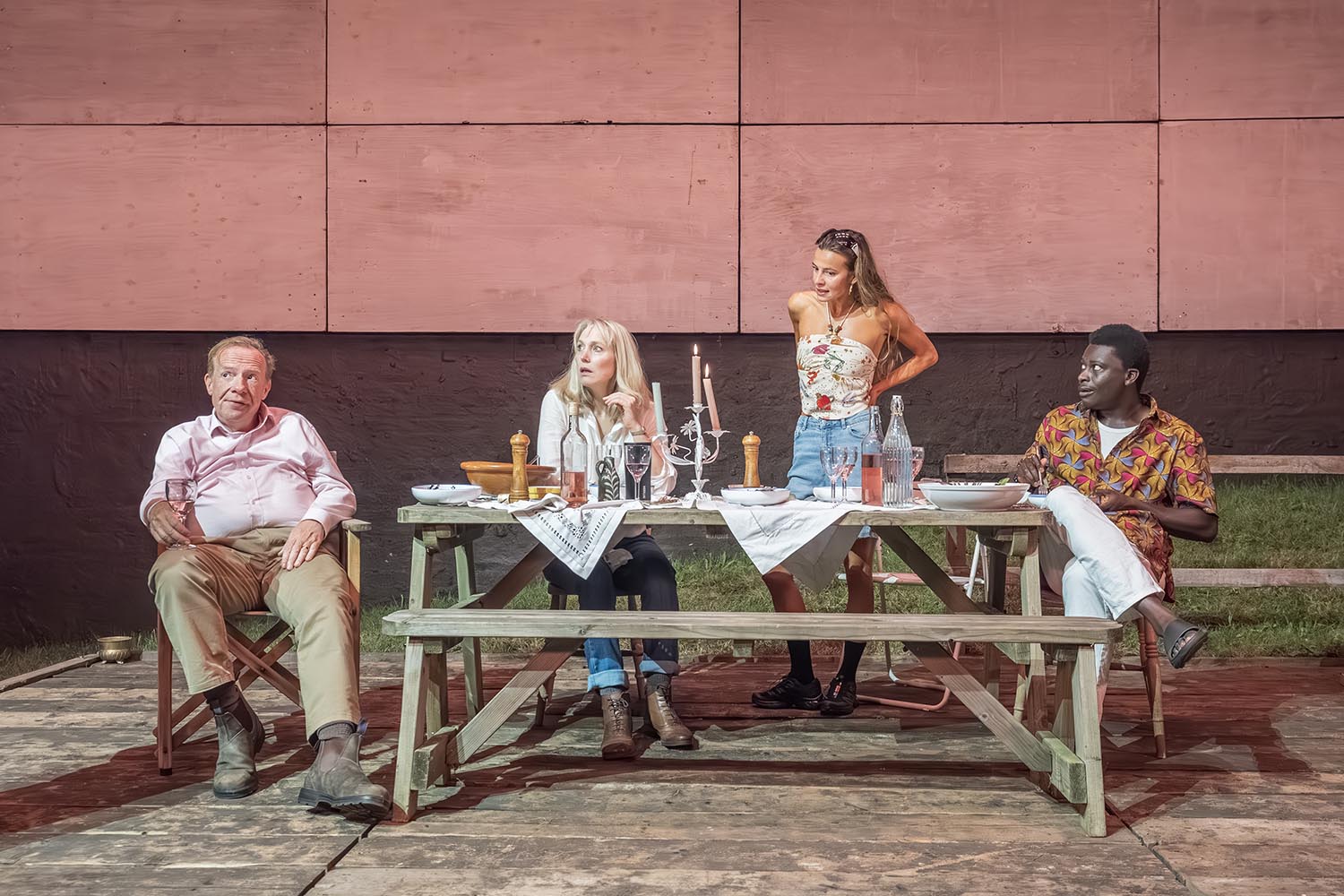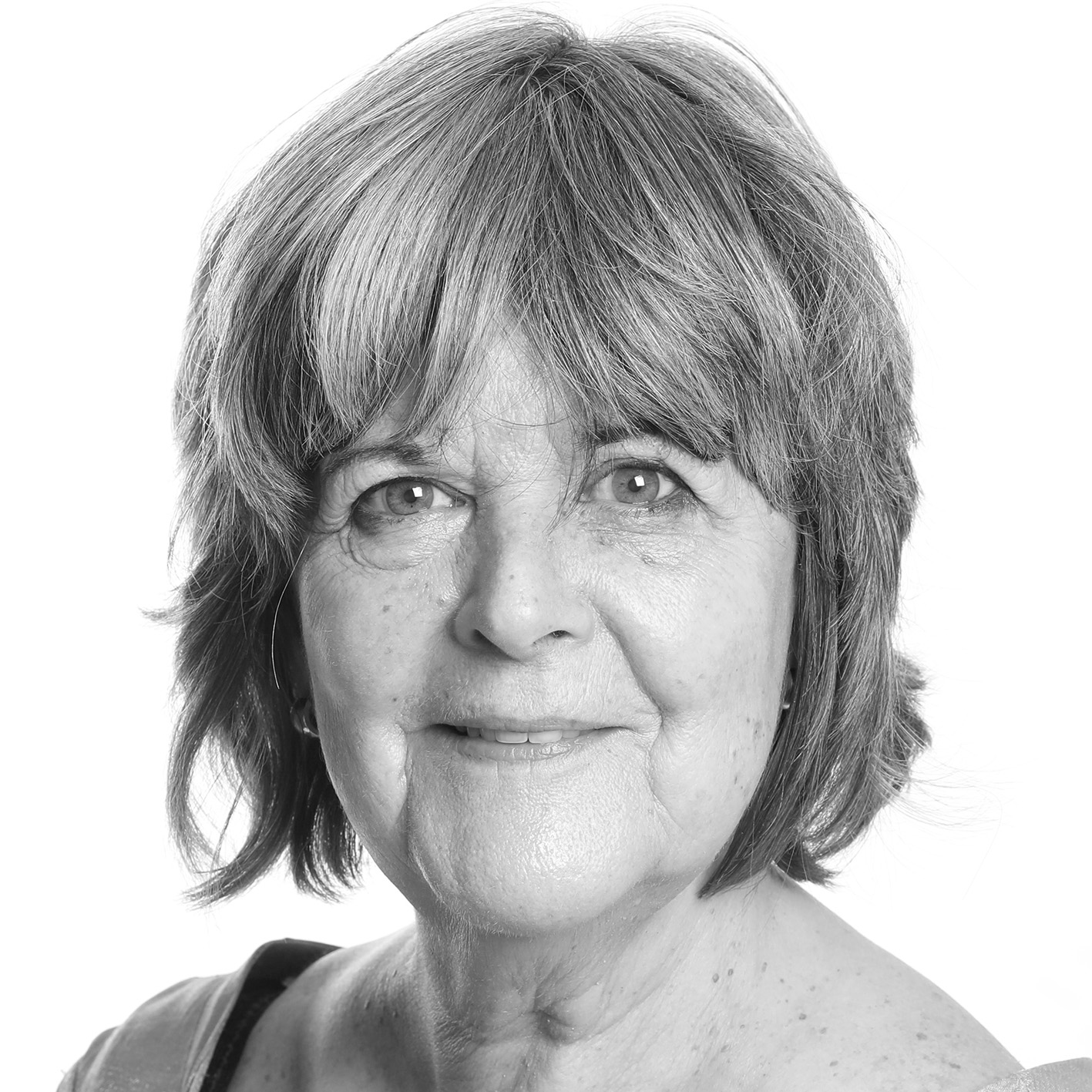Most plays are set in rooms. Yet every so often there it is on stage: the countryside. The place where Shakespeare sent courtiers to reconstruct themselves, where Chekhov heard social change in the axing of cherry trees, and Jez Butterworth conjured up a wild Eden in Jerusalem.
Now Mike Bartlett, rightly celebrated for his iconoclastic King Charles III and his television series Doctor Foster, turns to rural life to examine environmental degradation, global capitalism and self-fulfilment. The crux of Juniper Blood is clear. Is it better to drop out, rewild and feel pure, or spray a bit of pesticide, ensure you have the money to keep going and give your child antibiotics – which may have been made by a wicked company? Not a novel divide: actually, not unlike The Good Life, remade for an era in which no one is eager to appear rampantly materialistic.
Psychologically, the division is broadbrush, but it is given abundant agricultural and economic detail. As a clever ecology student (there’s a good joke about name-dropping Oxford), Terique Jarrett, as persuasive as the part’s straitjacket permits, lays the data out at such length that the action is stalled. He is all fluency. On the other horny hand, Sam Troughton, a native son of soil in retreat from modern technology, is almost mute and got up to look like a tree stump. There is piquancy in the casting – Troughton’s father and brother play Tony and Tom Archer in The Archers – but little in the character, who has mostly to look glum and keep mum. Hattie Morahan too is largely wasted. She is subtle in the opening scene: though in earnest about starting a new life on the land, her commitment looks comic as she lays sprigs of herbs on the picnic plates. Yet subsequently she is obliged simply to project woebegone stares.
Is it better to drop out, rewild and feel pure, or spray a bit of pesticide and give your child antibiotics?
Is it better to drop out, rewild and feel pure, or spray a bit of pesticide and give your child antibiotics?
The debate is substantial and lines flash with Bartlett’s humour. Nadia Parkes and Jonathan Slinger have the best of these and are the most vivid presences: she as a cross teenager, he as a pragmatic, randy farmer. Yet no character is more than a compass point in the debate. James Macdonald – usually a sinewy director – can’t disguise this inertness. Though Helen Skiera’s soundscape sets the air warbling with birds, Ultz’s unyielding design – whiteboard wall, black painted brick, grass – is like a flat pack waiting to become something. As is Juniper Blood.
In As You Like It, court glides into country, while women turn themselves into men (though not vice versa) and pleasure twists into pain. It is this molten quality that makes this Shakespeare “comedy” so as I like it.
It is, then, a pity that Ralph Fiennes’s production – part of an unmissably well-programmed season at Bath – is so often so static. In the opening scene, chaps declaim stock-still, as if they have been superglued to the boards. The evening opens and closes with video of a stag: monarch or hunted victim, the significance is not clear; the image quivers but does not bound.

‘Sceptical androgyny’: Harriet Walter, centre, as Jaques, and company in As You Like It.
Yet strong performances light up the heart of the drama, in which Shakespeare keeps quizzing how men and women speak to each other and to themselves. Although “it is not the fashion to see the lady the epilogue”, Rosalind gets the last word. Gloria Obianyo captivates: lolloping and at ease, but tender and explosive in the intricate scenes in which, dressed as a boy, she courts her future husband.
As Celia, Amber James is punchy and sharp. It is part of the feminism of the play that this companion should be much more than a sidekick: Horatio gets in comparison a raw deal from Hamlet. It is part of the beautiful shading of the comedy that the grumpy shepherdess Phebe (nicely spiky Imogen Elliott) should be one of the most eloquent speakers.
Yet it is Harriet Walter as Jaques – the only main character free of romantic entanglement – who supplies the keynote. Her sceptical androgyny is part of Walter’s continuing examination of Shakespearean roles: from her appearance in Phyllida Lloyd’s groundbreaking all-female trilogy to her reimagining of heroines in her recent book, She Speaks. Walter made me realise that the “Seven Ages of Man” speech, which starts so promisingly with “all the men and women merely players”, goes on to talk only of blokes. Circling the action with insouciant melancholy, she makes the jovial Duke and his fellow deer-slayers look like bread-roll throwers. She makes the countryside a place not only of “hey nonny nonny”, but also of “no”.
Photographs by Marc Brenner
Newsletters
Choose the newsletters you want to receive
View more
For information about how The Observer protects your data, read our Privacy Policy

